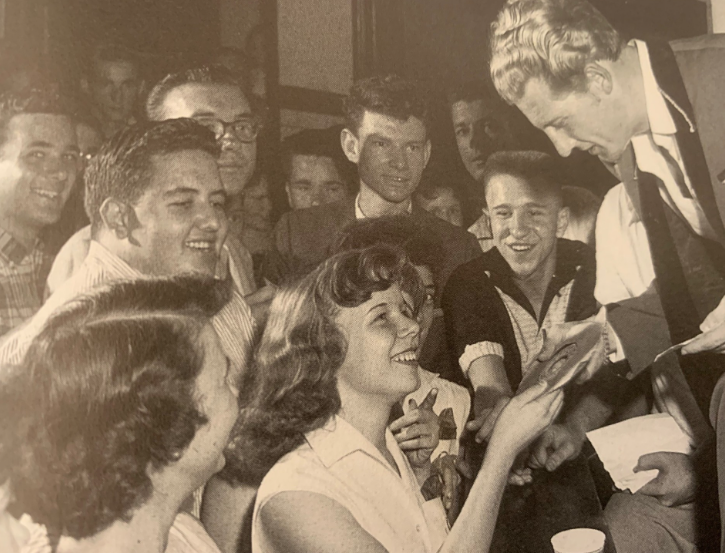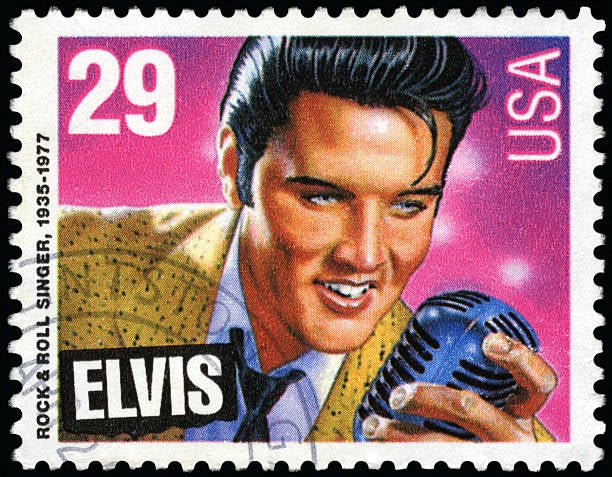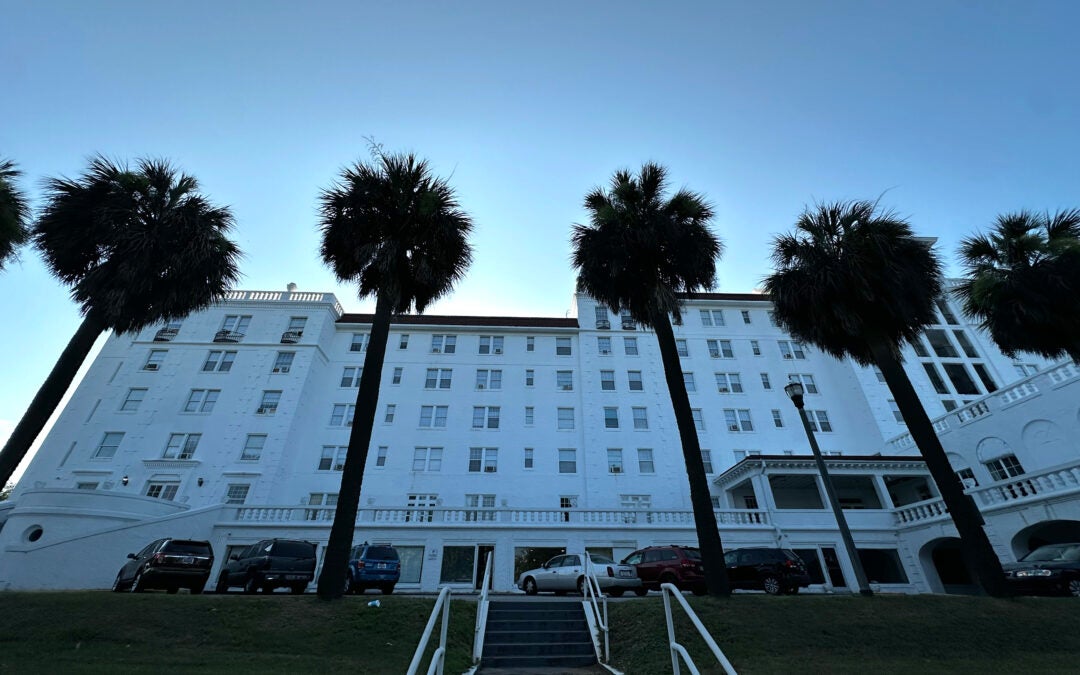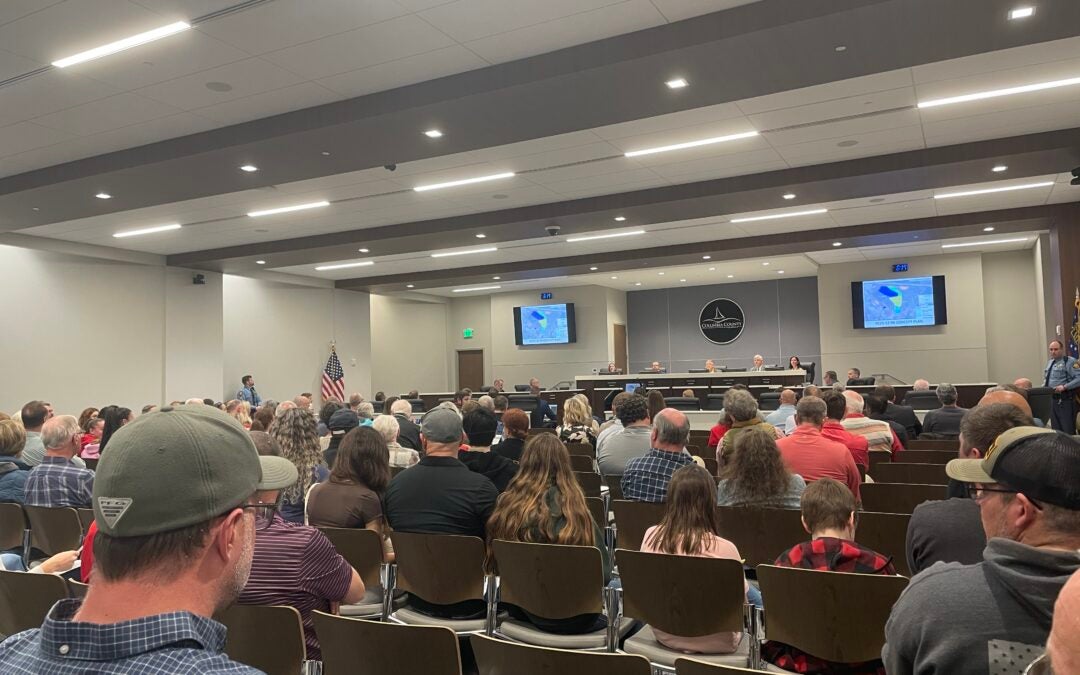Rock and roll music did not take the country by fire storm, as some revisionist historians like to claim, it was more like a slow burn, with the Deep South being among the last of the converts to the “Devil’s Music.”
Augusta was different, though.
In 1956, Elvis Presley was heating up on AM radio, with some of his most beloved hits such as “Don’t Be Cruel,” “Heartbreak Hotel” and “Love Me Tender” among others charting that year.
The year 1956 was also the second time that Elvis performed in Augusta, according to Don Rhodes, in his book, “Entertainment in Augusta and the CSRA.” Elvis’ first trip to Augusta, it appears, was largely ignored, but in 1956, the King topped the bill and packed out the 6,000 person capacity Bell Auditorium.
Elvis had yet to appear on The Ed Sullivan Show, but Augusta music lovers were on the cutting edge and tickets to the June 27 show sold out quickly. However, that did not mean that Presley’s performance didn’t come without some controversy.

The derogatory term, “Elvis the Pelvis,” summed up what some adults of the time thought of the young singer, with many objecting to the star’s onstage hip gyrations. Presley’s manager, Col. Tom Parker purportedly sold “I hate Elvis” buttons to profit off the King’s haters.
In Augusta, Presley’s fame persuaded George Wiess, owner of WBBQ radio, to switch the station’s format to include Top 40 Rock and Roll and that did not sit well with his star disk jockey.
According to Wiess, George Fisher, whose morning program was rated number one, cornered him in his office and flat-out refused to play Elvis.
“He didn’t just want Elvis banned from his show, he wanted Elvis banned from the station. I usually let George pick out what he wanted to play on his program, but when he started demanding I change out of the Tiger Radio format altogether, that was just too much,” Wiess recalled in 1991.
Fisher would famously quit WBBQ and went on to help found WBIA radio, which along with WGAC, made it a point that they would not be bending to the new, rebellious “fad.”
After many decades on Augusta radio, Fisher would be proud that he was not among those attempting to despoil the youth of America.
“I am proud that I never promoted a Mae West film and I never once played Elvis Presley,” Fisher said.
Fisher, however, would be in the minority, as plenty of other businessmen understood the income potential of tapping into the “teenage dollar.” Augusta, with the help of Wiess’ Tiger Radio, became a major stopover for rock and roll entertainers.
Controversy over the sometimes outrageous lifestyles of rock and roll musicians would continue, with one of the biggest scandals hitting in May of 1958 when a British journalist exposed the details of red-hot rock and roller Jerry Lee Lewis’ third marriage.

Not only had Lewis walked the aisle with Myra Gale Brown while he was still married to his second wife, but, according to the Daily Mail, Brown was his first cousin once removed…and she was only 13 years-old.
Southerner’s took particular offense to Lewis’ marriage, which was apparently legal in Alabama, because, in their minds, it only served to strengthen Southern stereotypes as that of a bunch of backwoods, bigamist, inbred, pedophile hayseeds.
The “Great Balls of Fire” singer’s scandal didn’t seem to bother Augustans though, as the “Killer” would perform to a capacity crowd at the Bell just one month after the scandal broke. In fact, Rhodes notes in his book that, if anything, fans were let down as Myra Lewis was billed to appear alongside her husband, but was delayed in Atlanta due to car trouble.
While Augusta’s national music influence would wane by the mid-1980s, coinciding with the decline of WBBQ when the once powerhouse station switched formats to adult contemporary after the death of George Weiss, Augusta was once on the cutting edge of entertainment.
The stories of early rock and roll in Augusta are legendary and too numerous to recount in one article.
…And that is something you may not have known.
Scott Hudson is the Senior Investigative Reporter, Editorial Page Editor and weekly columnist for The Augusta Press. Reach him at scott@theaugustapress.com











